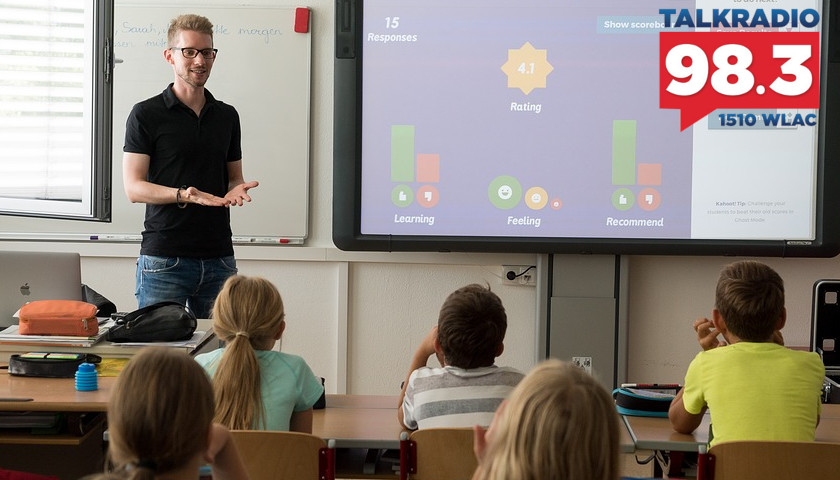On Wednesday’s Tennessee Star Report with Michael Patrick Leahy – broadcast on Nashville’s Talk Radio 98.3 and 1510 WLAC weekdays from 5:00 am to 8:00 am – Leahy took a call from Mike the Teacher, who expressed his concern for the bloated central district school administration offices in Metro Nashville Public Schools, which he felt were draining the schools financially. He noted that math and science teachers should be paid more than those that teach ‘fluff’ subjects such as a physical education.
Towards the end of the call, caller Mike expressed an urgency in allowing those kids who are not interested in school to be allowed to leave and enter into the workforce after eighth grade.
Leahy: Hey, we have a special caller now, Mike the Teacher from Davidson County. We’re going to give him the last five minutes in the show. Had a great call. Mike, thanks for calling in. Good morning.
Mike: Hey, good morning Michael. I really have three thoughts. Just thinking back on my previous call. With Metro Schools. Our central district office is so obscenely bloated. It’s just so bloated with high salary administrators and staffers who do absolutely nothing all day, and then they make a lot more than the teachers do. If they all just disappeared, these math specialists.
And these English literacy specialists. If they disappeared tomorrow and went back into the classrooms, the kids wouldn’t notice a single thing. It would save the taxpayers a fortune. And also, Metro right now has nearly 200 vacancies in our classrooms.
Leahy: Hmm hmm.
Mike: Most of those are math and science. We have this antiquated concept of paying all teachers the same based on their seniority and so forth. We pay math and science teachers which are critical needs the same as a phys. ed teacher or some of these other teachers of these fluff subjects. We really need to be paying our math and science teachers more to be able to compete with industry for these…
Leahy: Math and science. Makes sense. What’s the third idea you have for us Mike?
Mike: My idea is, give parents the option opting their kid out of school after eighth grade. Some of these kids are just filling up the classroom. They’re thugs. They don’t want to be there. Let them out in the workforce. I mean, that’s all their going to do eventually anyways is go and work maybe retail or construction or janitorial.
Let them do it at age 13 or 14. In some cases the families actually need the money. Get them out of our classrooms. That way you can eliminate a whole bunch of the bad teachers. You can even increase class sizes because you are removing the disruptive students.
Leahy: Yes.
Mike: And you can eliminate half the administrators because they do absolutely nothing.
Leahy: Yes.
Mike: The administration. Absolutely nothing to impact the classroom in any positive way. So I would say let the kids opt out of public education after eighth grade. I bet you a third of them would get out of the classroom and go straight to the workforce.
Leahy: Also, if they had some level of skills. I mean, if they could actually could do something besides just sit there and look at their phones. That would help them make that transition I think. Don’t you?
Mike: Yes. And in some cases you almost want them to look at their phones so they’re (Leahy laughs) not at least disrupting the class.
Leahy: Hey Mike, we are running out of time here but will you make sure to call us back again? And by the way, Jimmy we’re going to turn, Mike we’re going to take your comments and turn this into a story at The Tennessee Star. It will be up at midnight tonight because this is an important call and you have important things to say Mike. So, thanks for calling us and please call back again.
Mike: Thank you Michael.
Listen to the full hour:
– – –
Tune in weekdays from 5:00 – 8:00 am to the Tennessee Star Report with Michael Patrick Leahy on Talk Radio 98.3 FM WLAC 1510. Listen online at iHeart Radio.






In support of Mike the Teacher’s third suggestion, wouldn’t it be a cost-saving and employment- enhancing position to have the school system contract with employers to provide the skills training students need when they drop out of school? Maybe for the first year or two, depending on the level of training provided? This process would reduce the number of students, reducing the number of teachers needed, and give some of those bloated school administrators something useful to do in setting up and monitoring contracts with employers.